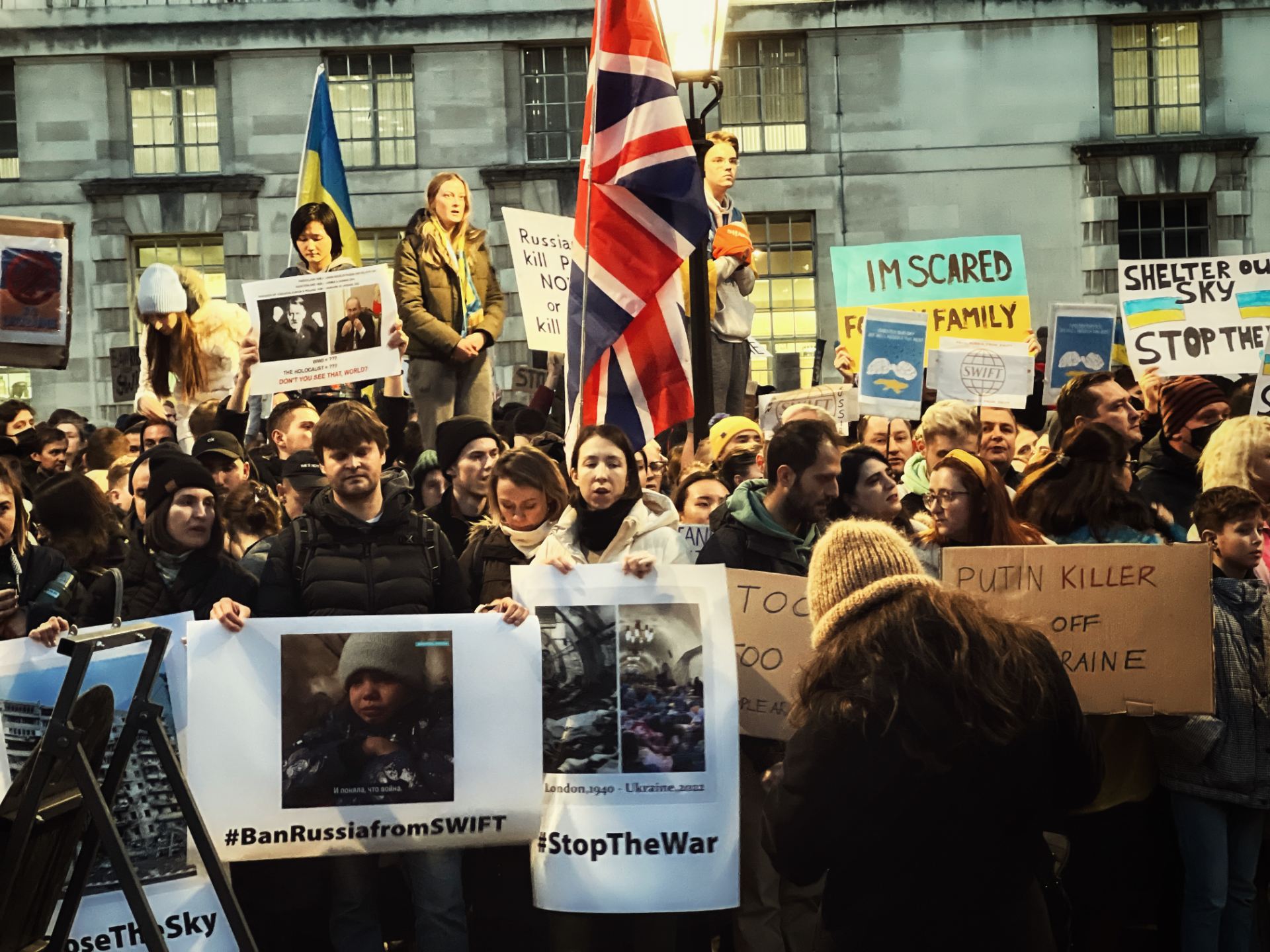Economic Sanctions Against War: An Effective Deterrent?
By Swati Sharma, on 27 April 2022

Protests in London against the invasion of Ukraine. Obtained under Creative Commons CC0 1.0 Universal Public Domain Dedication.
The ongoing Russian-Ukraine war has triggered a string of economic sanctions against Russia, apparently intended to bring an end to the conflict. Let us understand the background and ramifications of sanctions.
Sanctions, in general, are a set of penal actions taken against an entity or entities, that could be adopted by courts, nations, or international bodies. Chapter VII of the UN Charter, through Article 41, also provides for non-military enforcement measures.
Ideally, preventing conflicts and enhancing international peace and security are considered a few of the prime objectives of sanctions. However, sanctions have also often been seen as political tools for settling diplomatic scores or achieving other desirable results, making their efficiency as a non-violent, diplomatic conflict resolution tool questionable.
In contrast, economic, humanitarian, and commercial sanctions typically worked better than any combination—Iran, 1979; Iraq, 1990; Haiti, 1991; and Yugoslavia, 1992, to name a few.
There are also instances aplenty when sanctions failed to accomplish their goal. In 2014, UN, EU, and US sanctions were imposed on Russia when it invaded Crimea, but still a war erupted in Ukraine. Despite UN sanctions, the Taliban strengthened and seized control of Afghanistan. Additionally, Iran, North Korea, and Cuba have all defied sanctions. Moreover, sanctions can risk spurring conflict, as in Rwanda, 1990, and Nicaragua, 1970.
In today’s age of globalisation, sanctions have become a double-edged sword. To impose effective sanctions, one must necessarily: (a) diagnose the causes of conflicts accurately; (b) design sanctions such that they decisively alter the balance of power, and (c) ensure political will among those imposing sanctions to sustain them. For, with the lapse of time, their—those sanctioning—will can be eroded, or new diplomatic factors may emerge. Therefore, it is time to reconsider the efficacy of sanctions as such and explore whether sanctions need to be supplemented by other measures to resolve conflict and reduce the risk of war.
Swati Sharma is a veteran of the Indian Army, and after successful completion of her tenure, joined the Rajasthan Home Guards Services. While she served as the Commandant, she got selected as a Chevening Scholar 2021-22. Presently, she is currently pursuing her Master’s in Risk, Disaster and Resilience at IRDR, UCL.
Contact
swati.sharma.21@ucl.ac.uk | Twitter: @captswatis
www.linkedin.com/in/capt-swati-sharma-retd-6b69b0132
 Close
Close

